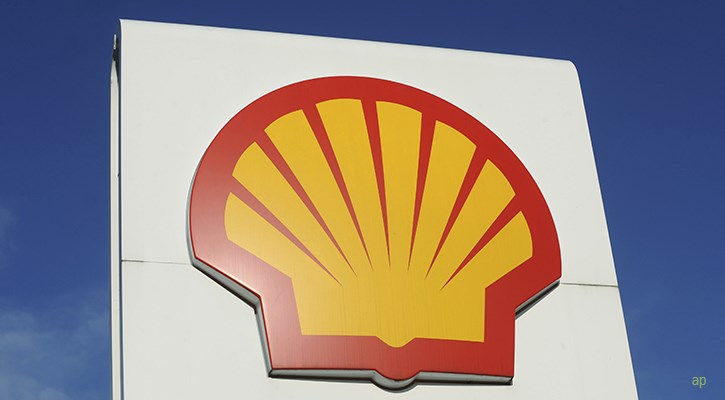
Share buybacks are all the rage in the UK at the moment, with the likes of Tesco, Unilever, Shell and WPP all spending billions buying back their own shares. But how do they work and do investors benefit?
How Do They Work?
The concept is a simple one.
During a buyback, a company buys back its shares from shareholders, reducing the total number of shares available in the market.
Logically, shares become more valuable the more scarce they are. So an announcement of a share buyback tends to lift the price of the shares in the open market, although its long-term effects are harder to predict.
A buyback also tends to increase the earnings per share (EPS), a key accounting metric showing how profitable each share is.
Morningstar Investment Management’s David Harrell described this in a recent video in terms of pizza: “If you think about a single share of a stock as a slice of that company, or at least a slice that entitles you to a portion of its earnings, every share is equal to a slice. Now if you've always sliced your pizza into eight slices and now you're slicing it into six slices, each slice is a little bit bigger.”
Why Do Companies Do This?
The effect the buyback is usually to support the share price. So a company can do this during a period of share price weakness. Companies announce their actions to investors, revealing how many shares have been bought and at what price (miner Anglo American has just done this today, for instance).
Buybacks can also be a way of rewarding shareholders after a difficult time and signal that a company is prepared to support its share price when the going gets rough.
Royal Dutch Shell (RDSB) is just one of a long list of FTSE 100 heavy hitters to be embarking on share buybacks, in tandem with dividend increases. A soaring oil price is helping oil companies to boost their balance sheets and investors are benefiting. This largesse follows 2020’s income crisis when companies across the board cut, cancelled or froze their payouts to survive the pandemic.
Companies can also use buybacks to ward off potential predators like private equity firms, which are often looking to buy companies at distressed valuations (Morrisons, one of the UK grocery market’s weakest players, was recently the subject of a bidding war by buyout firms). A higher share price makes a company less vulnerable to being taken over as the bidder has to pay more to acquire it.
Is it a Good Use of Company Money?
Buybacks are just one tool in a company’s armoury that come under the wider remit of “shareholder returns”, which also encompasses the dividend policy. In essence, companies make a decision to do something with their spare cash, and that could lead to the purchase of another company, investing in research and development or new projects, or paying out ordinary or special dividends to investors.
Even highly successful companies embark on buybacks, so it’s not usually seen by the market as a sign of weakness or desperation. Apple is set to buy back around $100 billion in stock this year. Markets and company valuations look pretty pricey right now, so shareholders may not wish their companies to embark on expensive spending sprees with their money that they may regret in leaner times, so that can rule out spending excess cash on acquisitions. In some countries, buybacks are cheaper than paying out dividends from a tax perspective.
In the book Accountable: How We Can Save Capitalism, authors Michael O’Leary and Warren Valdmanis also argue that many share buy-backs are bad in the long term, because they preclude companies from spending the money needed to buy back stock on wages, communities, and the environment.
Are They a Good Thing for Dividend Investors?
That’s up for debate. Income investors would probably prefer generous payouts to take preference over buybacks. But as we saw last year, the dividend tap can be turned off pretty sharply, with painful consequences for those who rely on an income stream.
Buybacks are also less high-profile and can be adjusted with less controversy, so investors tend not to rely on them. As we point out in our monthly dividend article, income investors are now focused on total return. Share prices matter too, and buybacks are one way of managing them. In an ideal world, companies would be increasing payouts to shareholders in tandem with a rising share price.
Are There Rules Governing Buybacks?
Shareholders can vote to agree on a buyback policy, and there are limits in many countries on the percentage of share capital that can be bought back. In the UK, the ceiling is 15%, but that can be breached in exceptional circumstances. Investors would need to rubber stamp this.
Are They Short Term Quick Fixes?
Buybacks can be open-ended, although companies usually set targets for the year. Retailer Next is one company that has employed buybacks in the past during periods of share price weakness, and faced some criticism at the time from investors. But Next’s long-term share price record speaks for itself, with shares rising many multiples since the financial crisis. There’s a wealth of academic research looking at the effects of buybacks too.
What Happens to the Shares?
The shares are bought by the company. In theory they could be "reissued" again (allowing people on the open market to buy them back up) but most likely they will be then “cancelled”, and effectively retired with no value.









.jpg)


















